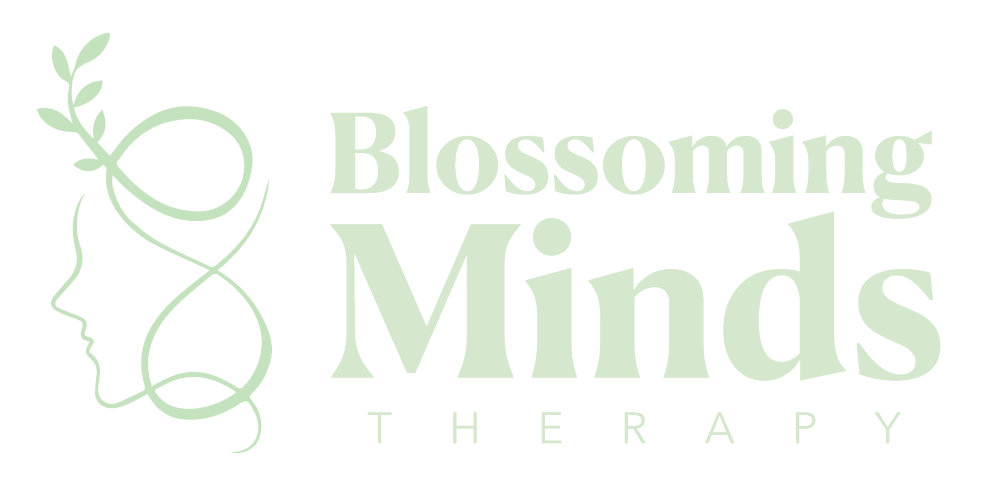Therapies
Acceptance & Commitment Therapy (ACT)
Running away from any problem only increases the distance from the solution. The easiest way to escape is to sole it!

What is ACT?
Acceptance & Commitment Therapy is an action-oriented psychotherapy that aims to help people accept what is out of their control and commit to actions that enhance their lives. It teaches people to stop avoiding, denying or suppressing their inner emotions and instead accept these deeper feelings as an appropriate response commitment to healthy and effective activities that uphold a person's goals and values. Hence, ACT allows people to embrace and accept feelings and thoughts rather than fighting or feeling guilty for them.
Benefits of ACT
Strategies Used In ACT
ACT intends to develop & increase a person's psychological flexibility an ability to adapt thoughts and behavior's so they align well with your goals and values. Mental Health practitioners at Blossoming Minds Therapy use the following strategies to promote psychological flexibility:

Acceptance
An active choice that allows people to acknowledge and embrace their thoughts and feelings, without trying to avoid, deny or change them.
Cognitive Defusion
Allows people to distance themselves and change how they react to distressing thoughts and feelings, which will mitigate their harmful effects.


Being Present
Involves being mindful and aware of the present moment. People are encouraged to observe their thoughts, feelings, and actions without judging or trying to change them.
Self as Context
An idea that a person is not simply the sum of their experiences, thoughts or emotions. The ‘self as context’ aims to provide an alternative concept that there is a self outside of the current experience.


Values
Refers to the personal values and qualities that a person strives towards in the present moment. Every person holds values both consciously or unconsciously to direct and achieve their goals.
Committed
Involves taking concrete steps to incorporate changes that aligns with values and leads to positive change. This may involve goal setting, exposure to difficult thoughts or experiences and skill development.

Dialectical Behaviour Therapy

What is DBT?
DBT is designed to help people change behaviours that negatively impact their lives while simultaneously accepting who they are and the circumstances around them. It teaches them how to live in the present moment, regulate emotions and develop healthy ways to cope with life transitions such as planning a baby, coping with a miscarriage or maintaining a work-life balance as a parent. DBT allows people to gain control over their behaviour by replacing unhealthy behaviours with new healthy behaviours.
Impact of Dysregulation during Pregnancy
Pregnancy is a period ofsignificant biological and psychological change for both fathers and mothers. It is a time of vulnerability when couples are more likely to experience mental health concerns, especially emotion dysregulation. Research has found that emotion dysregulation can lead to:
- Increased levels of stress in pregnant women
- Difficulty falling asleep/staying asleep
- Unhealthy eating behaviours/body image
- Higher levels of depression/anxiety
- Self-injurious (OBSESSIVE) thoughts and behaviours

Benefits of DBT
Strategies Used In DBT
Mental health practitioners at Blossoming Minds Therapy utilise the following strategies to guide and assist people adjust to the challenges of pregnancy:

Mindfulness
Is the practice of being fully aware and present in the moment. It allows people to focus on what is happening inside (one’s thoughts, feelings, sensations) while using their senses to be aware of their surroundings (what they see, hear, touch, smell) in nonjudgmental ways.
Emotion regulation
Allows people to navigate intense negative emotions (like anger or disgust) by teaching them to identify, name, and change their emotions.


Interpersonal effectiveness
Teaches people how to maintain healthy relationships, get their needs fulfilled and keep their self-respect. Skills like patience, listening, conflict resolution, self-awareness, and negotiation are a part of interpersonal effectiveness.
Distress tolerance
Focuses on teaching people crisis survival skills. It guides them to foster acceptance in situations that are out of their control without making matters worse.

Mindfulness Based Cognitive Therapy (MBCT)
Our life is what our thoughts make it. - Marcus Aurelius

What is MBCT?
MBCT is a type of psychotherapy that combines cognitive therapy and mediative principles. Cognitive therapy helps people identify and modify unhelpful thinking and distressing emotional response. Mindfulness refers to the practice and state of being aware of our thoughts, feelings and actions. It encourages people to adapt and have acceptance of the self and current circumstances without any judgements. MBCT allows people to experience distressing emotions with patience, kindness and empathy.
Benefits of MBCT
Strategies Used In MBCT
Mental health therapists at Blossoming Minds Therapy utilise the following strategies and exercises to support people adjust and transition into new life realms such as pregnancy:

Meditation
People learn to practice guided or self-directed meditation that helps them understand and have greater awareness of their body, thoughts and breathing.
Body scan exercise
This involves people lying on their backs with their palms facing up and their feet slightly apart. The therapist begins with awareness to the breath (noticing the rhythm and the experience of breathing in and out) followed by awareness to the different body parts (how it feels, texture of clothing against the skin and the temperature of the body).


Mindfulness practices
Focuses on being aware of the present moment whether its during meditation or daily activities like showering, brushing, making your bed or washing dishes.
Mindfulness stretching
This strategy involves stretching mindfully to bring awareness to both the body and mind. Mindfulness stretching reduces the muscle tension, thereby reversing the cycle of tension, then tightening, and pain. It has been proven to increase serotonin levels i.e., the hormone that helps stabilize our mood, reduce stress, and overall makes us feel good — which causes a decrease in depression and anxiety.


Yoga
In this strategy people are encouraged to practice different yoga poses that helps facilitate mindful stretching of the body. When we practice yoga, our brain cells develop new connections, and alterations happen in brain structure, resulting in enhanced cognitive skills, such as learning and memory. It strengthens parts of the brain that play a key role in memory, attention, awareness, thought, and language.
Our Location
Office Hours
Monday to Friday – 9:00AM to 6:00PM
Saturday and Sunday – Closed




